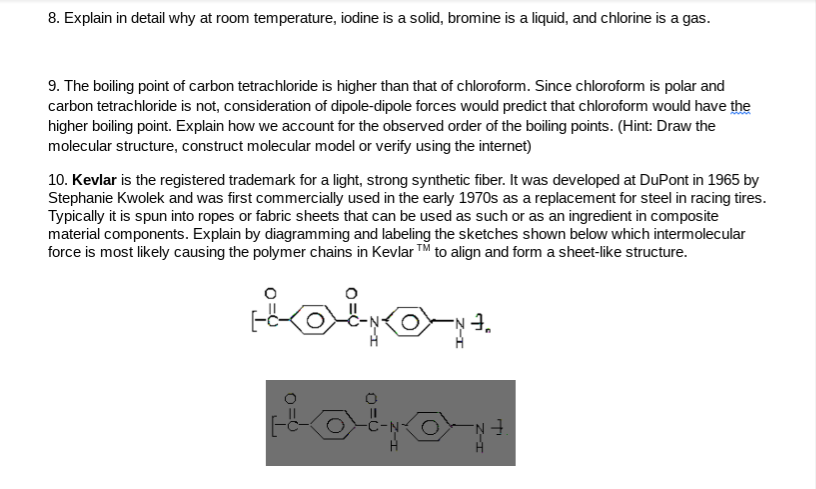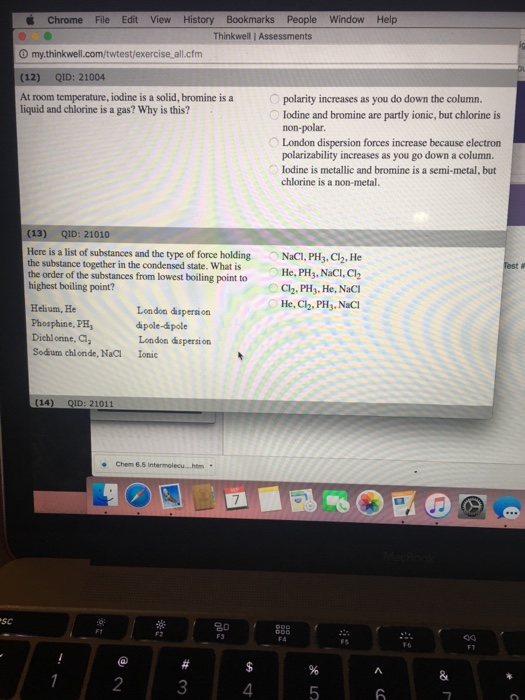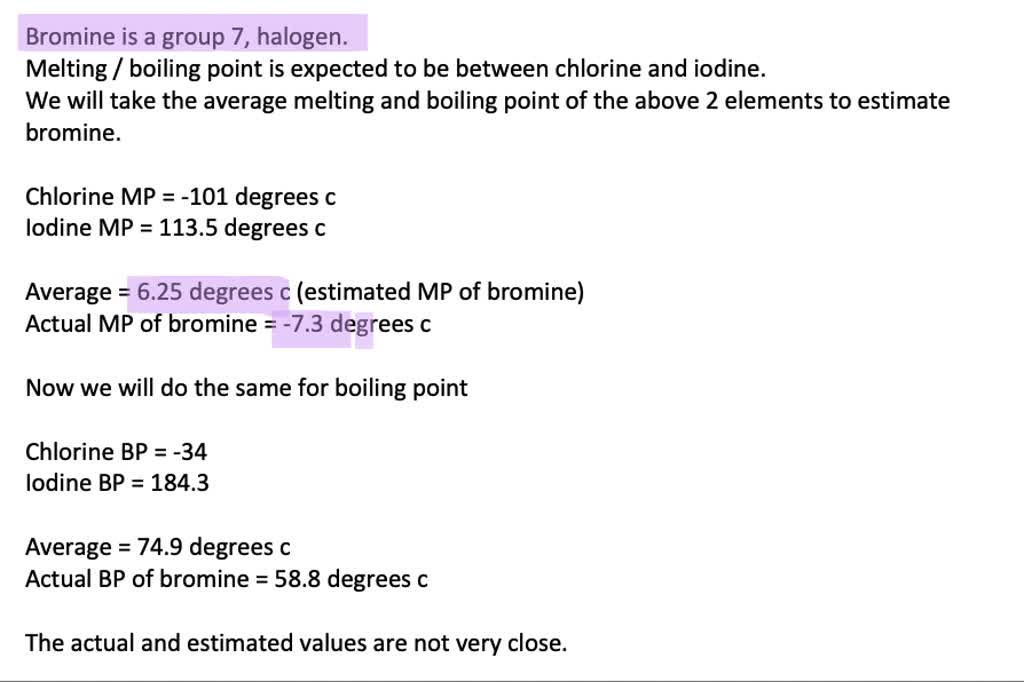Its properties are thus intermediate between those of chlorine and iodine isolated independently by two chemists carl jacob löwig in 1825 and antoine jérôme balard in 1826.
Why is bromine a liquid at room temperature and iodine a solid.
As iodine has a higher atomic number than chlorine it also has more electrons in its electron shells.
Bromine is a chemical element with the symbol br and atomic number 35.
Their group number only describes the number of electrons they have in their outer shell.
Bromine is a liquid at room temperature and iodine is a solid.
It has a low value of electronegativity.
The iodine that you buy in a store as a liquid has been mixed with other chemicals for easy use.
Why is iodine a solid at room temperature and chlorine a gas despite being in the same group.
At ordinary temperature and pressure chlorine is because a gas bromine is a liquid and iodine is a solid because.
In other words they are chemical elements found in group 17 of the periodic table of elements.
What elements form diatomic gases.
It is the third lightest halogen and is a fuming red brown liquid at room temperature that evaporates readily to form a similarly coloured gas.
Iodine is further down group 7 than chlorine.
2 9 recall the colours and physical states of the elements at room temperature chlorine gas pale green bromine liquid red brown evaporates to form brown gas iodine solid black sublimes to form purple gas 2 10 make predictions about the properties of other halogens in this group reactivity decreases down the group color darkens down the group.
At room temperature is chlorine a.
Bromine is a liquid at room temperature and iodine is a solid.
The key difference between bromine and iodine is that bromine is a liquid at room temperature while iodine is a solid at room temperature.
That s why we can observed these elements at different physical states at room temperature.
Bromine and iodine are halides.
Iodine is a solid at room temperature because 500 likes.









